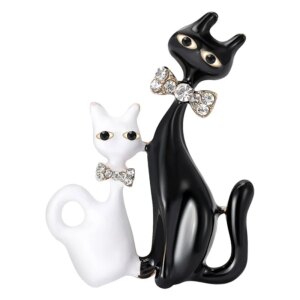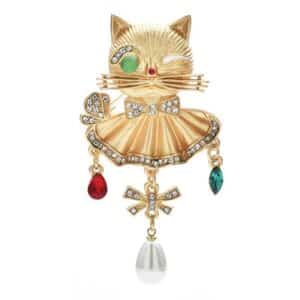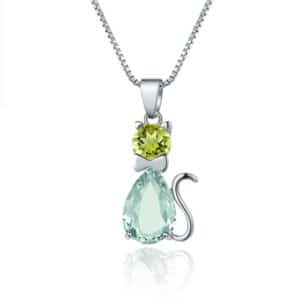Cats meowing loudly can be a common issue for many cat owners, but understanding the reasons behind this behavior is crucial. Whether it’s seeking attention, expressing pain, or feeling anxious, there are several strategies to help manage and reduce loud meowing. In this article, we will explore the various causes of loud meowing, provide tips on how to address these issues, and offer advice on when to seek professional help. By the end, you’ll have a better understanding of your cat’s behavior and how to create a more harmonious home environment.
Common Reasons for Cats Meowing Loudly
Seeking Attention
One of the most common reasons why cats meow loudly is to seek attention from their owners. Cats are social animals and often meow to communicate their needs or desires. When your cat meows for attention, it might be because they want to play, be petted, or simply spend time with you. However, excessive attention-seeking meowing can be disruptive and annoying.
To manage this behavior, it’s important to establish a routine for playtime and interaction. Consistent play sessions can help reduce your cat’s need to meow for attention. Additionally, ignoring inappropriate meowing can discourage this behavior over time. Instead, reward your cat with treats and affection when they are calm and quiet. If you need more personalized advice, feel free to contact us or reach out to us at info@catkarmacreations.com.
Expressing Pain
Cats meowing loudly can also be a sign of pain or discomfort. If your cat is meowing more than usual, it could be an indication that they are experiencing some form of physical distress. Common causes of pain in cats include underlying health issues, injuries, or illnesses. It’s essential to pay attention to other signs of pain, such as changes in appetite, lethargy, or hiding.
If you suspect that your cat is in pain, it’s important to seek veterinary care as soon as possible. A veterinarian can conduct a thorough examination to identify the underlying cause of your cat’s discomfort and recommend appropriate treatment. Pain management and addressing the root cause can help reduce your cat’s meowing and improve their overall well-being. For more information on cat health and wellness, you can visit our website.
Feeling Anxious or Stressed
Another reason why cats meow loudly is anxiety or stress. Cats can become anxious due to various factors, such as changes in their environment, separation from their owners, or exposure to new stimuli. Loud meowing can be a way for cats to express their discomfort and seek reassurance.
To help reduce anxiety in your cat, create a calm and secure environment. Provide a safe space where your cat can retreat when they feel overwhelmed. Use pheromone diffusers or sprays to help calm your cat. Additionally, maintaining a consistent routine and providing mental stimulation through toys and play can help alleviate stress. For more tips on creating a calming environment, check out our cat-themed jewelry and gifts that can add a touch of comfort to your home.
Hunger or Thirst
Cats meowing loudly can also be a sign that they are hungry or thirsty. Cats are known to meow to signal their owners that it’s time to eat or drink. If your cat’s feeding schedule is irregular or if they are not getting enough food, they may meow more frequently to get your attention.
To manage this behavior, establish a consistent feeding schedule and ensure that your cat has access to fresh water at all times. Consider using automatic feeders to provide regular meals if you are away from home for extended periods. If your cat continues to meow for food, consult with your veterinarian to ensure that they are receiving a balanced and appropriate diet. For more information on cat nutrition, visit our nature-inspired section for tips and ideas.
Boredom or Loneliness
Cats can also meow loudly when they are bored or lonely. Cats are intelligent and curious animals that require mental and physical stimulation to stay happy and healthy. If your cat is left alone for long periods or does not have enough toys and activities, they may meow to express their boredom or seek companionship.
To keep your cat engaged and entertained, provide a variety of toys and activities. Interactive toys, puzzle feeders, and scratching posts can help keep your cat mentally stimulated. Consider adopting a second cat if you have the space and resources, as having a feline companion can help reduce loneliness and provide social interaction. For more ideas on keeping your cat entertained, explore our sterling silver jewelry and gifts that can inspire fun and play.
Behavioral Signs to Watch For
Frequent Meowing
Frequent meowing is one of the most obvious signs that your cat is trying to communicate something. If your cat is meowing more often than usual, it could be a sign of a variety of issues, such as seeking attention, expressing pain, or feeling anxious. Pay attention to the context and timing of the meowing to help identify the underlying cause.
For example, if your cat meows frequently when you are preparing to leave the house, it could be a sign of separation anxiety. If the meowing occurs during mealtime or when you are in the kitchen, it might be a sign that your cat is hungry. By understanding the context, you can better address your cat’s needs. If you need more personalized advice, feel free to contact us or reach out to us at sales@catkarmacreations.com.
Restlessness or Pacing
Restlessness or pacing can be another behavioral sign that your cat is meowing loudly for a reason. If your cat is pacing around the house, meowing, and unable to settle down, it could indicate that they are feeling anxious or stressed. Cats may also pace and meow if they are in pain or discomfort.
If you notice your cat displaying these behaviors, it’s important to create a calm and secure environment. Provide a quiet room where your cat can retreat, and use calming aids such as pheromone diffusers. If the behavior persists, consult with a veterinarian to rule out any underlying health issues. For more tips on creating a calming environment, follow us on Facebook or Instagram.
Changes in Appetite or Lethargy
Changes in appetite or lethargy can be concerning signs that your cat is meowing loudly due to an underlying health issue. If your cat is meowing more frequently and also shows signs of reduced appetite, lethargy, or hiding, it could be an indication that they are in pain or discomfort.
It’s important to monitor your cat’s behavior and seek veterinary care if you notice any changes. A veterinarian can conduct a thorough examination to identify the cause of your cat’s symptoms and recommend appropriate treatment. Early intervention can help improve your cat’s health and reduce their meowing. For more information on cat health and wellness, you can visit our website.
Following Owner or Rubbing Against Legs
Cats that meow loudly and follow their owners or rub against their legs are often seeking attention or affection. This behavior is common in cats that have a strong bond with their owners and want to communicate their needs. If your cat is meowing and following you around the house, it could be a sign that they want to play, be petted, or simply spend time with you.
To manage this behavior, establish a routine for playtime and interaction. Consistent play sessions can help reduce your cat’s need to meow for attention. Additionally, reward your cat with treats and affection when they are calm and quiet. This can help reinforce positive behavior and reduce attention-seeking meowing. For more tips on building a strong bond with your cat, check out our cat-themed jewelry and gifts that can enhance your time together.
Lethargy or Hiding
Lethargy or hiding can be concerning signs that your cat is meowing loudly due to pain or discomfort. If your cat is meowing more frequently and also shows signs of lethargy or hiding, it could be an indication that they are in pain or experiencing an underlying health issue.
It’s important to monitor your cat’s behavior and seek veterinary care if you notice any changes. A veterinarian can conduct a thorough examination to identify the cause of your cat’s symptoms and recommend appropriate treatment. Early intervention can help improve your cat’s health and reduce their meowing. For more information on cat health and wellness, you can visit our website.
Effective Management Strategies
Establish a Routine
Establishing a consistent routine can help manage and reduce loud meowing in cats. Cats are creatures of habit and thrive on predictability. By establishing a routine for feeding, playtime, and interaction, you can help reduce your cat’s need to meow for attention or other reasons.
Set specific times for meals, play sessions, and cuddle time. Stick to this schedule as much as possible to help your cat feel more secure and comfortable. Consistency can help reduce anxiety and stress, which can contribute to loud meowing. If you need more personalized advice, feel free to contact us or reach out to us at admin@catkarmacreations.com.
Provide Mental Stimulation
Providing mental stimulation is essential for keeping your cat engaged and entertained. Boredom and lack of mental stimulation can lead to excessive meowing and other behavioral issues. Offer a variety of toys and activities to keep your cat mentally and physically active.
Interactive toys, puzzle feeders, and scratching posts can help keep your cat mentally stimulated. Consider setting up a cat tree or climbing tower to provide vertical space and encourage exercise. Regular play sessions can also help reduce boredom and prevent attention-seeking meowing. For more ideas on keeping your cat entertained, explore our sterling silver jewelry and gifts that can inspire fun and play.
Seek Veterinary Care
If your cat is meowing loudly and you suspect that they are in pain or experiencing an underlying health issue, it’s important to seek veterinary care. A veterinarian can conduct a thorough examination to identify the cause of your cat’s symptoms and recommend appropriate treatment.
Signs that your cat may need veterinary care include persistent or severe meowing, changes in appetite or behavior, lethargy, or hiding. Early intervention can help improve your cat’s health and reduce their meowing. Don’t hesitate to consult a veterinarian if you are concerned about your cat’s well-being. For more information on cat health and wellness, you can visit our website.
Use Positive Reinforcement
Using positive reinforcement can help manage and reduce loud meowing in cats. Rewarding your cat for calm and quiet behavior can encourage them to adopt more appropriate communication methods. Instead of responding to loud meowing, wait for your cat to be quiet and then provide treats, affection, or playtime.
Consistency is key when using positive reinforcement. Ignore inappropriate meowing and only reward your cat when they are calm and quiet. Over time, your cat will learn that being quiet is the best way to get your attention and rewards. For more tips on positive reinforcement, follow us on Facebook or Instagram.
Create a Calm Environment
Creating a calm and secure environment can help reduce stress and anxiety in cats, which can lead to excessive meowing. Cats are sensitive to their surroundings and can become anxious due to changes in their environment or exposure to new stimuli.
Provide a quiet room where your cat can retreat when they feel overwhelmed. Use pheromone diffusers or sprays to help calm your cat. Maintain a consistent routine and provide mental stimulation through toys and play. A calm and secure environment can help reduce your cat’s need to meow for attention or other reasons. For more tips on creating a calming environment, check out our cat-themed jewelry and gifts that can add a touch of comfort to your home.
When to Seek Professional Help
Persistent or Severe Meowing
If your cat’s loud meowing is persistent or severe, it may be time to seek professional help. Persistent or severe meowing can be a sign of an underlying health issue or behavioral problem that requires attention. If you have tried management strategies and the behavior continues, it’s important to consult with a veterinarian or a certified animal behaviorist.
A veterinarian can conduct a thorough examination to rule out any health issues and recommend appropriate treatment. A certified animal behaviorist can provide guidance on behavior modification techniques and help you address the underlying causes of your cat’s meowing. For more information on professional help, visit our website.
Signs of Illness or Injury
Signs of illness or injury should never be ignored. If your cat is meowing loudly and also shows signs of pain, discomfort, or other health issues, it’s important to seek veterinary care as soon as possible. Common signs of illness or injury in cats include changes in appetite, lethargy, hiding, and vocalization.
A veterinarian can conduct a thorough examination to identify the cause of your cat’s symptoms and recommend appropriate treatment. Early intervention can help improve your cat’s health and reduce their meowing. Don’t hesitate to consult a veterinarian if you are concerned about your cat’s well-being. For more information on cat health and wellness, you can visit our website.
Behavioral Changes
Behavioral changes can be a sign that your cat is experiencing stress or anxiety. If your cat’s behavior has changed significantly, such as increased meowing, restlessness, or hiding, it may be time to seek professional help. A certified animal behaviorist can provide guidance on behavior modification techniques and help you address the underlying causes of your cat’s behavior.
A behaviorist can also offer advice on creating a calm and secure environment and provide strategies to reduce stress and anxiety in your cat. Consistent behavior modification and environmental changes can help reduce your cat’s need to meow excessively. For more tips on behavior modification, follow us on Facebook or Instagram.
Lack of Response to Management Strategies
If your cat’s loud meowing persists despite your best efforts to manage the behavior, it may be time to seek professional help. Sometimes, cats have underlying issues that require specialized care and attention. A veterinarian or a certified animal behaviorist can provide additional support and guidance to help you address your cat’s needs.
Professional help can include a thorough examination, behavior modification techniques, and environmental changes. By working with a professional, you can ensure that your cat receives the care and attention they need to live a happy and healthy life. For more information on professional help, visit our website.
Popular Quote
“Cats are a mysterious kind of folk. There is more passing in their minds than we are aware of.” – Agatha Christie
Statistical Fact
According to the American Veterinary Medical Association (AVMA), approximately 30% of cats exhibit signs of anxiety or stress, which can manifest as excessive meowing. This statistic highlights the importance of addressing behavioral issues in cats to ensure their well-being. For more information, visit the AVMA website.
Three Tips to Manage Cats Meowing Loudly
- Establish a Routine: Cats thrive on predictability. Set specific times for feeding, play sessions, and cuddle time to help reduce your cat’s need to meow for attention.
- Use Positive Reinforcement: Reward your cat for calm and quiet behavior with treats, affection, or playtime. Consistency is key in reinforcing positive behavior.
- Create a Calm Environment: Provide a quiet room where your cat can retreat when they feel overwhelmed. Use pheromone diffusers or sprays to help calm your cat and reduce anxiety.
Popular Questions
- Why is my cat meowing so much at night? Cats are naturally more active at night. Establish a routine and provide nighttime entertainment to help reduce meowing.
- Is it normal for my cat to meow when I leave the house? Yes, this can be a sign of separation anxiety. Create a calm environment and use calming aids to help your cat feel more secure.
- How can I tell if my cat is in pain? Signs of pain in cats include excessive meowing, changes in appetite, lethargy, or hiding. Consult a veterinarian if you notice these symptoms.
- Can I train my cat to stop meowing? Yes, using positive reinforcement and behavior modification techniques can help reduce excessive meowing. Consult a certified animal behaviorist for guidance.
Final Thoughts About Cats Meowing Loudly
Understanding why your cat is meowing loudly is the first step in addressing this behavior. By identifying the underlying causes and implementing effective management strategies, you can create a more peaceful and harmonious home environment. If you’re unsure about the reasons behind your cat’s meowing or if the behavior persists, don’t hesitate to consult a veterinarian. With the right approach, you can help your cat feel more comfortable and reduce loud meowing. For more personalized advice and support, feel free to contact us or reach out to us at (800) 343-1604. We’re here to help you and your feline friend live a happier, healthier life together.

















